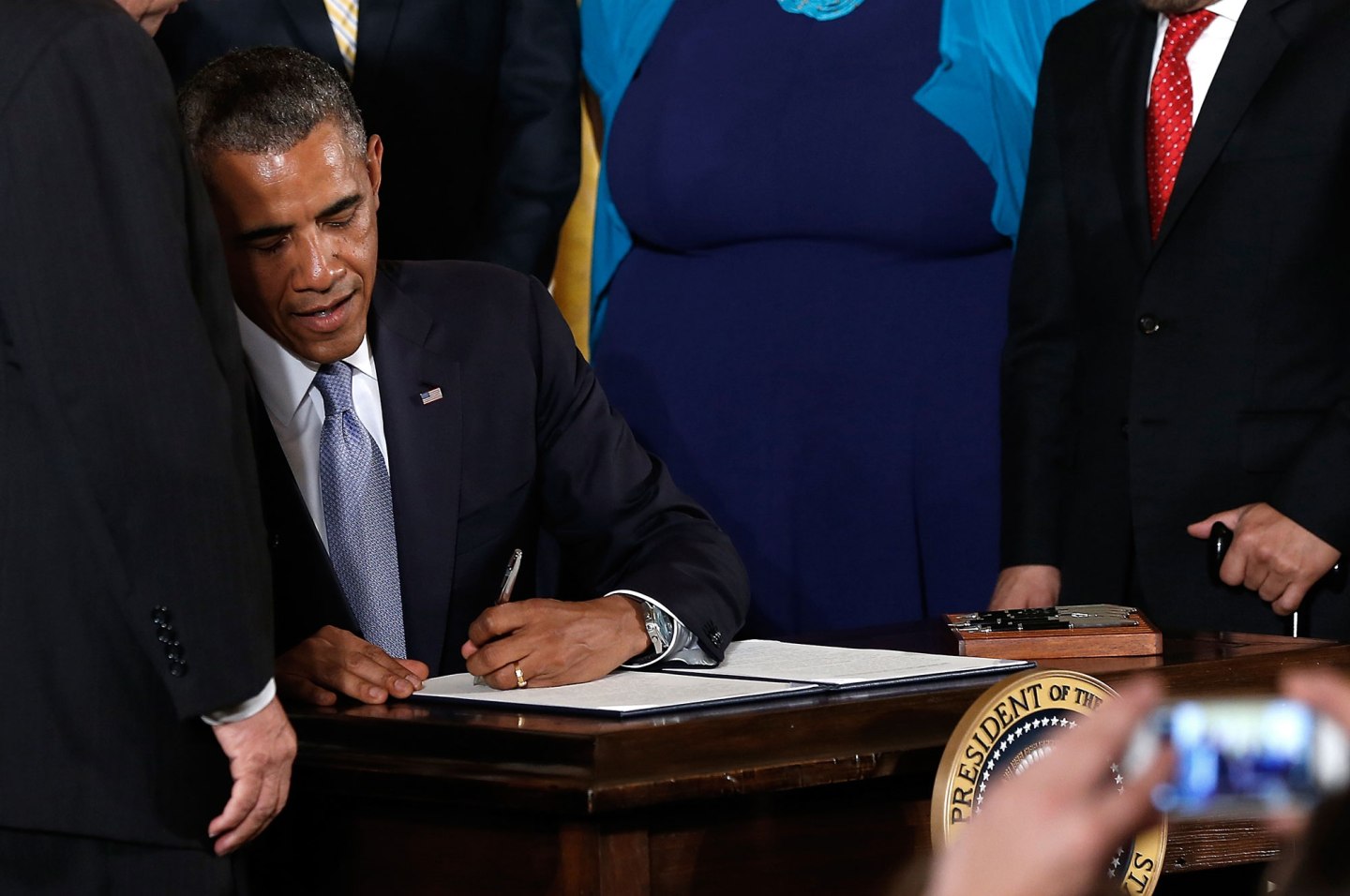On Monday, President Barack Obama signed an executive order banning companies under contract with the government from discriminating against employees on the basis of sexual orientation and gender identity.
While that seems cut-and-dry, the order is in fact chock full of ambiguity.
That uncertainty lands right at the intersection of religious freedom and government oversight—a space already charged by a June Supreme Court decision that recognized the religious right of corporations to withhold contraception insurance coverage from employees, striking down an Obamacare mandate.
Monday’s executive order prohibits federal contractors from discriminating against employees based on their sexual orientation and gender identity—a directive that will affect 24,000 companies and 28 million workers, who account for one-fifth of the nation’s workforce. The order also protects transgender federal employees from discrimination, a safeguard that��s already been extended to the government’s LGBT workers.
While President Obama has been dead set on instituting such guidelines since the 2008 campaign, the specifics of how the rules would be applied had long been up in the air. For months, faith groups have been pleading with President Obama to make a specific exemption so that religious organizations wouldn’t lose government funding if they failed to abide by the new LGBT and gender identity directive. But when the president signed the order on Monday, it lacked such an exclusion.
Gay rights advocates praised the move, while religious groups like the National Association of Evangelicals said that they “regret” it. But just because President Obama failed to officially exempt religious organizations from the executive order doesn’t mean they are bound to it.
In addition to not excusing faith groups, the executive order also didn’t touch a 2002 executive order by President George W. Bush that allows religious contractors to consider their religious beliefs in employment decisions.
On the surface, that 2002 directive seems to say that—for instance—a Catholic organization has the right to hire only workers who follow the Catholic faith. But both the Bush-era order and Monday’s order leave enough wiggle room for a religious group to discriminate against employees who identify as LGBT if that organization’s faith condemns homosexuality. Now, both sides of the debate are demanding that the administration clear up that fuzziness.
“Without clarity on how the 2002 protection will apply to this new executive order, we risk opening up the doors for litigation that leaves both LGBT Americans and religious organizations uncertain and unprotected,” said Michael Wear, who used to serve as President Obama’s liaison to the evangelical community.
Based on past gender discrimination cases, religious organizations should not be able to discriminate based on sexual orientation, says Jennifer Pizer, senior counsel at Lambda Legal, an LGBT civil rights organization. But the order is brand new, she says, so it’s uncertain how courts will interpret it. “It will be easier if [President Obama] gives internal direction to his lawyers that religious groups do not have special permission to use their religion against LGBT people,” she says.
By leaving the vagueness of the 2002 religious exemption intact, the executive order that could have closed the book on a large chunk of LGBT discrimination has merely extended the discussion even further.







